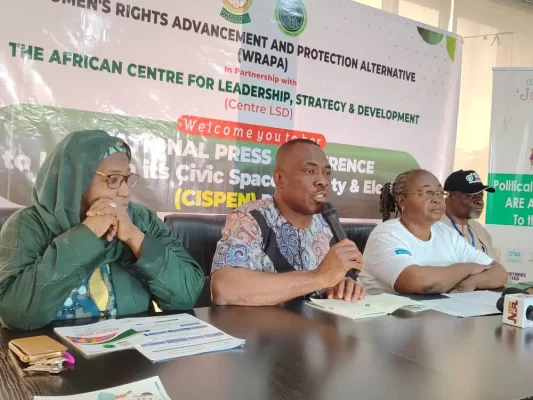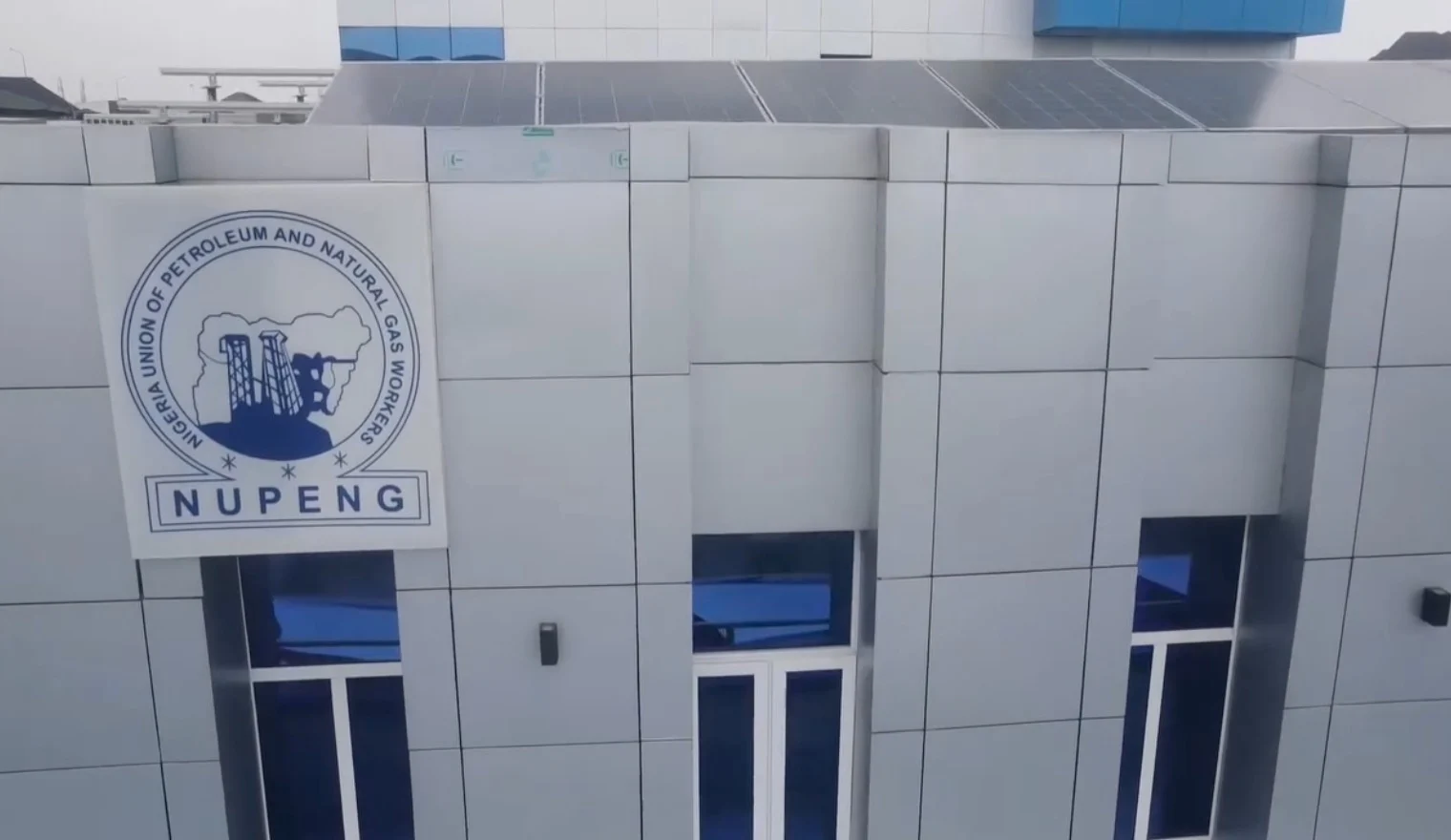By Adenle Ahmed Abiola
Copyright theeagleonline

Ahead of the 2027 general election, Civil Society Organizations CSOs in the country have bemoaned Nigeria’s shrinking civic space, weak electoral trust as well as the politicization of poverty by politicians.
This is as they noted that while periodic elections are now a permanent feature, these three issues need to be tackled before the general election.
The CSOs spoke on Tuesday in Abuja through the Women’s Rights Advancement and Protection Alternative WRAPA and the African Centre for Leadership, Strategy & Development (Centre LSD).
Among those who spoke at the event were Hajia Saudatu Mahdi, Secretary General of WRAPA; Dr Otive Igbuzor, founding Executive Director of Centre LSD; Itia Otabor, Director of Strategy at Centre LSD; Yemisi Nathaniel, Director of Programmes at WRAPA and Mrs Eze Tracy of Centre LSD.
They opined that while as a nation, Nigeria continues to celebrate its uninterrupted democratic civil rule characterized by positive milestones, there is an urgent need to check the downsides which are capable of causing serious setbacks to the journey.
Lamenting the shrinking civic space, they noted that civil society organizations, activists, journalists and human rights defenders are increasingly facing restrictions in the form of hostile governance and operational regulations, law enforcement intimidation, harassment and surveillance.
Police recover large arms, ammunition in Nasarawa, Benue border community 2027: CSOs bemoan shrinking civic space, high poverty, voter inducements Village head arrested for shooting sister in palm fruit dispute Lookman leads charge against Bafana Bafana as Troost-Ekong returns to starting line-up Obi advocates support for SMEs as he resumes public engagement after ‘Doctor-Recommended’ break
“Provisions of laws such as the Companies and Allied Matters Act (CAMA 2020) and the Cybercrime Act are important.
“However, the undemocratic use of these and other laws to silence expression of opinions, calls for good governance, and the limitations of independent organizing, is unacceptable.
“Civic space is the heartbeat of democracy, when it is under siege, it shrinks freedoms and painfully erode the foundations of participatory democracy and accountable governance.
“The outcomes of the Civic Space, Poverty and Election (CISPEN) project has shown the deep yearnings of Nigerians across social, economic and political divides to speak, to participate in the processes that determine their lives, and to hold elected and appointed duty bearers accountable through the periodic elections we celebrate.”
The CSOs also noted that global statistics show the presence and impact of multidimensional poverty, with over 133 million citizens living in want or access to basic human needs.
“While we may not be last on the poverty index, the position we are presents a paradox of poverty in the midst of plenty.
“This is considering Nigeria’s mineral and human endowments, our diversity which should ideally be a strength and not a tool of political manipulation and non-accountability.
“The outcomes of the CISPEN project point to the resilience of Nigerians, willing to overcome the odds and reject handouts, inducements, or vote-buying to elect people of integrity, commitment and the welfare of citizens.
“The old saying of: ‘Who pays the piper dictates the tune’ runs true in the perception of citizens on the neutrality and capacity of election management institutions, referring particularly to the leadership of the election body, in this instance the Independent National Electoral Commission INEC.
“The process of the appointment of its Chairperson and Federal Commissioners has remained a concern especially its independence.
“The outcomes of the CISPEN project point clearly to the need for the injection of steps in the process of the appointment of the INEC Chair in order to instill confidence and prove wrong, widely held public perceptions of external influences,” they added.
The CSOs further promised to continue to expand their engagements working with civil society, academia, professional bodies, and grassroots movements, adding that they will pursue and continue critical advocacy engagements with the National Assembly, INEC, the Judiciary, and Security agencies to generate understanding and commitment to translate the CISPEN proposals into actionable policies.
Among other recommendations, the CSOs called on the Executive and Legislature to urgently include the recommendations in their Policy Briefs and Memorandum in the ongoing Constitutional and Legislative reforms.
While calling on the Judiciary to uphold its role as the guardian and protector of democracy and the rights of citizen to speak and demand accountability of its elected leaders, they also urged INEC to courageously embrace neutrality, openness and institutional operational and oversight reforms.



